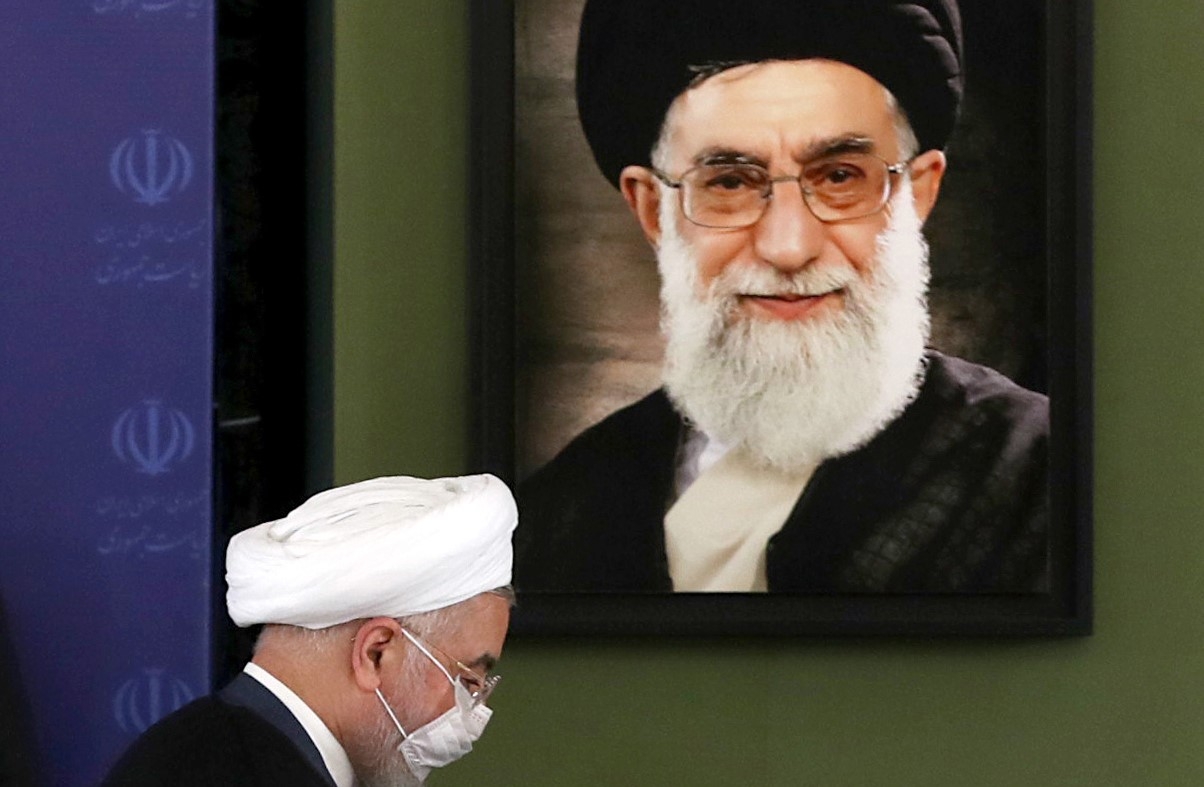Why a Biden presidency will not solve the US-Iran conflict

In the aftermath of the US election, many pundits and experts believe the clouds may disperse from US-Iran relations. They expect an easing of tensions and the revival of the 2015 landmark nuclear deal between Iran and six world powers, which President Donald Trump unilaterally abandoned in 2018.
While we have learned from history that in politics, we should never say never, the road ahead is bound to be bumpy.
“We urgently need to change course,” President-elect Joe Biden wrote in September in an opinion piece published by CNN, saying he would “offer Tehran a credible path back to diplomacy. If Iran returns to strict compliance with the nuclear deal, the United States will rejoin the agreement as a starting point for follow-on negotiations.”
Devil in the detail
After Joe Biden won the presidential election, according to projections by the Associated Press and numerous US news outlets, Iranian President Hassan Rouhani said it was “an opportunity for the next US government to make up for past mistakes and return to the path of adhering to international commitments with respect to global rules”.
Stay informed with MEE's newsletters
Sign up to get the latest alerts, insights and analysis, starting with Turkey Unpacked
Javad Zarif, Iran’s foreign minister, who has in the past said that he had good personal relations with Biden, also welcomed his election. He tweeted: “The American people have spoken. And the world is watching whether the new leaders will abandon disastrous lawless bullying of outgoing regime - and accept multilateralism, cooperation & respect for law.”
It would be nonsensical to lift nuclear-related sanctions on the one hand, while imposing 'targeted sanctions' on the other
Biden’s opinion piece, which was dedicated to his strategic policy towards Tehran, has sparked optimism among experts that diplomacy will replace Trump’s bullying and erratic decisions. But the devil is in the details.
Biden said the US would commit to rejoin the nuclear deal “as a starting point for follow-on negotiations”. But on what? “With our allies, we will work to strengthen and extend the nuclear deal’s provisions, while also addressing other issues of concern.”
One day before the presidential election, in an interview with CBS, Zarif categorically rejected the idea of renegotiating the nuclear deal. “Re-engagement does not mean renegotiation” because “if we wanted to do that [renegotiate], we would have done it with President Trump four years ago.” So, it remains to be seen how Biden’s team would be able to tackle this goal and succeed. If they make their return to the deal conditional upon renegotiating some of its terms later, that will most likely hit a wall.
Supporting Israel
There is more reason to doubt that Biden’s plan to de-escalate tensions with Tehran will succeed. Let us not forget that the Biden-Harris duo staunchly supports Israel. Biden is not just another version of former President Barack Obama. Biden, a self-avowed Zionist, has had friendly relations with Benjamin Netanyahu for around four decades, according to the Israeli prime minister.
As for vice president-elect Kamala Harris, her stance towards Israel “can be measured in her relationship with the American Israel Public Affairs Committee”, according to Haaretz. So, it would be reasonable to assume that the Biden administration will not be like Obama’s - and to tame Tehran, the new administration will have no leverage other than imposing sanctions.
“We will continue to use targeted sanctions against Iran’s human rights abuses, its support for terrorism and ballistic missile program,” Biden wrote in his opinion piece.
Apart from the relentless resistance that Biden and his administration would face in trying to convince the Iranian government to surrender to these three demands, it would be nonsensical to lift nuclear-related sanctions on the one hand, while imposing “targeted sanctions” on the other, in an effort to force the government of Iran to bow.
If the Biden administration takes this path, ostensibly, Iran’s ability to trade at the international level will diminish and an escalation of hostilities will become inevitable. Hardliners in Iran are impatiently waiting for the moment to say “I told you so” and sabotage any talks, as they have done throughout the history of the Islamic Republic.
'Ugly face of liberal democracy'
Let us not forget that Ayatollah Ali Khamenei and his followers’ anti-Americanism is deeply rooted, both ideologically and materially. Khamenei doesn’t want a detente with the US. On 7 November, referring to the US election, he tweeted: “The situation in the US & what they themselves say about their elections is a spectacle! This is an example of the ugly face of liberal democracy in the US. Regardless of the outcome, one thing is absolutely clear, the definite political, civil, & moral decline of the US regime.”
The conservatives maintain that there is "no difference” between Trump and Biden, and have repeatedly outlined their opposition to talks with Washington.
Biden may also have a hard time reversing the sanctions that the Trump administration imposed on Iran, unrelated to its nuclear programme, but to a greater degree related to counterterrorism. Iran’s oil sector, its central bank and its banking system, are now under terrorism-related sanctions.
Can Biden lift these sanctions? In theory, legally, yes. A president has the right to reverse any executive act that he or a previous president took. “Whether it is … politically possible is a different question,” argued Iran hawk Elliott Abrams, special representative for Iran at the State Department, in a recent interview.
Abrams, as many Iran experts in the US also argue, believes that Biden has a good chance to succeed because Iran’s economy is in tatters. “If we demand changes in their conduct … the Iranians will have no choice. They will have to make significant changes in their behaviour.”
For Iran, negotiations aren’t optional, a Foreign Policy article argues. But this is not how hardliners who dominate the deep state view the issue. They heavily support the “look East” strategy of cooperating with China and Russia, not only to confront US-led isolation, but also to consolidate a power block that can commit to Iran’s security and economic development.
Potential clashes
Aside from the above-mentioned factors that could hinder the possibility of reconciliation between Iran and the US, and mitigate the impact of sanctions on Iran’s economy, there are two caveats to consider.
Firstly, for better or worse, the Iranian deep state, dominated by and reliant upon the Islamic Revolutionary Guard Corps (IRGC) and its paramilitary volunteer militia, Basij, believes that it can still suppress social upheavals for the foreseeable future.
There is no alternative or leadership in opposition to the Iranian government that can mobilise dissent and threaten the system’s survival
The system succeeded in suppressing nationwide protests in 2017 and 2019, considered the most extensive operation ever undertaken by anti-riot and other security forces. Hassan Karami, commander of the anti-riot forces, has said: “We are at the height of preparedness, from training to equipment and knowledge of the enemy threats in various areas.”
Not only can they mobilise their plainclothes groups to squash any unrest, but - deserving of paramount notice - there is no alternative or leadership in opposition to the Iranian government that can mobilise dissent and threaten the system’s survival.
Secondly, in the event that future talks lead to any compromise on the Iranian side - since Iran’s economy is shattered not only due to sanctions, but also due to mismanagement, rampant corruption and the spread of coronavirus, which will persist for the foreseeable future - more unrest could be expected. In such an eventuality, it would be hard for the Biden administration to stay passive as a spectator. This could bring us to a new round of clashes between the two states.
The views expressed in this article belong to the author and do not necessarily reflect the editorial policy of Middle East Eye.
Middle East Eye delivers independent and unrivalled coverage and analysis of the Middle East, North Africa and beyond. To learn more about republishing this content and the associated fees, please fill out this form. More about MEE can be found here.







